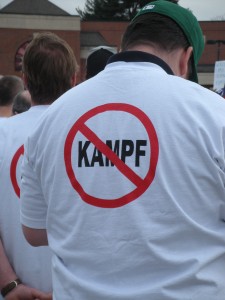Have you every visited a winery and wanted to ship a case of your favorite bottles to your home only to remember that option is not possible if you are a PA resident and the winery is out-of-state?
In Harrisburg yesterday, the option for Pennsylvania residents to have wine shipped directly to their homes from out-of-state wineries just moved a step closer to reality. Senators unanimously approved PA SB 790, 48-0 that would allow Pennsylvanians to buy as many as 24 bottles of domestic wine per month from US wineries. Purchases can be made over the Internet, telephone or by mail. The boxes would have to be marked as containing alcohol and require an adult’s signature and proper identification before a shipment is delivered.
Senate Bill 790 now moves to the House. However, it is possible that SB 790 will be tied in with PA HB 11, a bill to privatize liquor and wine sales that has been on the sidelines for several months. Since Gov. Corbett took office, there has been discussion about privatizingPennsylvania’s liquor store system. Apparently, there was difficulty reaching a consensus among legislators, and in the meantime, other options to improve the current system have been explored.
Pennsylvania House Bill 11 is a departure from the original intent, which was to sell off the state’s wine and liquor stores. Pennsylvania Liquor Control Board (PLCB) is the largest purchaser of wine and spirits in the US. No doubt, a primary factor in slow rolling selling the stores is that the 610 LCB stores hit a new retail year record in 2010-11 with sales topping $1.9 billion. With the kind of revenue that LCB generates, what’s the saying, “if it ain’t broke, don’t fix it”.
HB 11 takes a broader approach and makes beer and wine more accessible to consumers. The revised version includes a variety of issues including extending Sunday hours from 9 AM to 9 PM and allowing beer distributors to sell wine and 6-packs of beer. Under HB 11, the LCB continues to maintain and operate the stores selling liquor and wine. However, for $100 million each, wholesale wine licenses would become available, which suggests could lead to competitive pricing with the LCB. The bill contains another favorable addition – those locations with distributor licenses, which allow selling of beer, could also sell wine. (For me, that’s code meaning that Wegmans could sell bottles of wine in addition to beer).
Currently, Pennsylvania is one of only two states (the other is Utah) that owns and operates wholesale and retail sales of wine and spirits. Senate Bill 790 and House Bill 11 solve many of the issues that I have with the current system and, it protects the yearly revenue generated by the LCB and provides job security for the LCB state workers.
Combining the components of SB 790 and HB 11, what’s not to like about this legislation – it should satisfy everyone.



